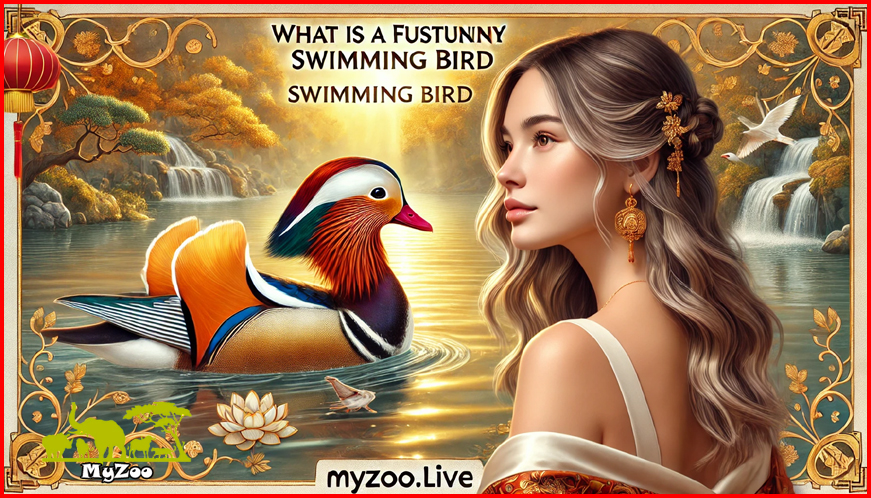
What Is a Fortunate Swimming Bird? Everything You Need to Know
Imagine gliding effortlessly across the water, wings outstretched, in perfect harmony with nature. Birds that swim have always fascinated humans, but what exactly makes a bird fortunate? In this blog, we dive into the world of fortunate swimming birds, exploring what sets them apart, their symbolism, and how they thrive in their aquatic habitats.
Whether you’re a birdwatcher, nature enthusiast, or just curious about the avian world, this guide will offer an engaging and informative look into the world of fortunate swimming birds. Let’s begin!
What Is a Fortunate Swimming Bird?
A fortunate swimming bird refers to a waterfowl or aquatic bird that not only thrives in its watery environment but is also associated with good luck, success, or spiritual significance. These birds often symbolize prosperity, resilience, and adaptability.
Common Characteristics of Fortunate Swimming Birds
- Webbed feet for efficient swimming
- Waterproof feathers to stay dry and insulated
- Strong beaks adapted for catching fish or filtering food
- Keen eyesight to detect prey underwater
- Symbolic significance in different cultures
Examples of Fortunate Swimming Birds

Here are some notable birds considered fortunate due to their abilities and symbolism:
1. The Mandarin Duck (Aix galericulata)
- Known as a symbol of love and marital happiness in Asian cultures.
- Unique vibrant plumage and strong swimming skills.
- Often seen in pairs, reinforcing loyalty and harmony.
2. The Swans (Cygnus spp.)
- Represent grace, purity, and transformation.
- Excellent swimmers with strong familial bonds.
- Commonly associated with myths of good fortune and rebirth.
3. The Kingfisher (Alcedinidae)
- A diving bird that symbolizes prosperity and patience.
- In some cultures, spotting a kingfisher is a sign of incoming wealth.
4. The Pelican (Pelecanus spp.)
- Represents self-sacrifice and abundance.
- Large throat pouch allows efficient fish catching.
5. The Cormorant (Phalacrocoracidae)
- Skilled underwater diver known for intelligence and adaptability.
- Used by fishermen in parts of Asia for traditional fishing.
Comparison of Fortunate Swimming Birds
| Bird Name | Symbolism | Unique Feature | Habitat |
|---|---|---|---|
| Mandarin Duck | Love, Happiness | Vibrant Colors | Lakes, Rivers |
| Swan | Purity, Elegance | Long Neck, Beauty | Freshwater |
| Kingfisher | Prosperity, Focus | Diving Ability | Rivers, Coasts |
| Pelican | Abundance, Charity | Large Pouch | Coastal Areas |
| Cormorant | Intelligence | Deep Diving | Oceans, Lakes |
Why Are These Birds Considered Fortunate?
1. Cultural and Mythological Significance
Many ancient traditions view water birds as symbols of good luck and divine messages. For example:
- Mandarin ducks in Feng Shui bring harmony to relationships.
- Swans in Greek mythology were linked to gods and beauty.
- Kingfishers were seen as predictors of calm seas.
2. Adaptability and Survival Skills
- Water birds can thrive in changing environments.
- Some species like the cormorant can dive up to 45 meters deep.
- Their waterproof feathers allow them to stay warm in cold waters.
3. Ecological Importance
- Help control aquatic life populations.
- Indicate healthy ecosystems.
- Play key roles in biodiversity conservation.
How to Attract Fortunate Swimming Birds to Your Area
If you want to welcome these lucky birds into your environment, here are some tips:
Provide a Suitable Habitat
- Build a small pond or water feature.
- Plant native water plants for shelter and nesting.
Offer the Right Food
- Avoid feeding birds bread (it’s harmful).
- Provide grains, seeds, and small fish for their diet.
Create a Safe Environment
- Keep predators away.
- Ensure clean water sources for the birds.
Fun Facts About Fortunate Swimming Birds
- A swan’s heart beats at only 60 beats per minute, making it a symbol of calmness.
- The mandarin duck does not quack like other ducks; it makes soft whistling noises.
- Kingfishers can see twice as well underwater as they do in the air.
- Pelicans have an air sac beneath their skin that allows them to float easily.
- Cormorants are one of the few birds that can sink underwater at will.
FAQs
Q1: What makes a bird a good swimmer?
A: Webbed feet, waterproof feathers, and a streamlined body contribute to excellent swimming ability.
Q2: Are all water birds considered fortunate?
A: Not all water birds are symbolic of fortune, but many have spiritual and cultural significance that makes them special.
Q3: Can I keep a fortunate swimming bird as a pet?
A: Most swimming birds are wild and require specific habitats. It’s better to support them in nature.
Q4: What is the luckiest water bird?
A: The mandarin duck is widely considered the luckiest due to its association with love and prosperity.
Conclusion
Fortunate swimming birds are more than just skilled aquatic navigators; they hold deep cultural, ecological, and symbolic significance. From the elegance of the swan to the adaptability of the cormorant, these birds continue to inspire and captivate us.
By appreciating their role in nature and creating bird-friendly environments, we can ensure that these magnificent creatures continue to thrive. Which fortunate swimming bird is your favorite? Let us know in the comments below!
Call to Action
If you found this blog helpful, share it with fellow bird enthusiasts! Subscribe to our newsletter for more fascinating wildlife insights.

